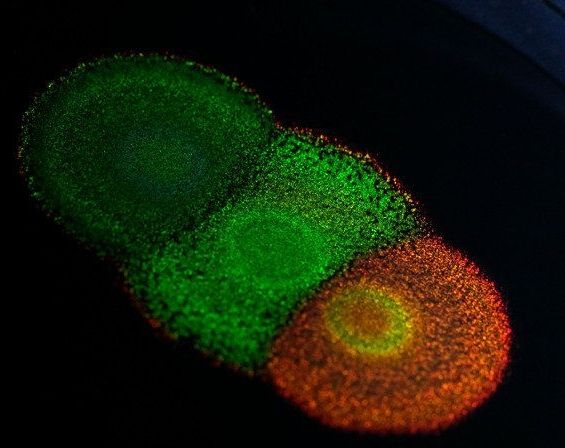Researchers have unlocked the genetic code behind some of the brightest and most vibrant colours in nature. The paper, published in the journal PNAS, is the first study of the genetics of structural colour — as seen in butterfly wings and peacock feathers — and paves the way for genetic research in a variety of structurally coloured organisms.
The study is a collaboration between the University of Cambridge and Dutch company Hoekmine BV and shows how genetics can change the colour, and appearance, of certain types of brightly-coloured bacteria. The results open up the possibility of harvesting these bacteria for the large-scale manufacturing of nanostructured materials: biodegradable, non-toxic paints could be ‘grown’ and not made, for example.
Flavobacterium is a type of bacteria that packs together in colonies that produce striking metallic colours, which come not from pigments, but from their internal structure, which reflects light at certain wavelengths. Scientists are still puzzled as to how these intricate structures are genetically engineered by nature, however.
